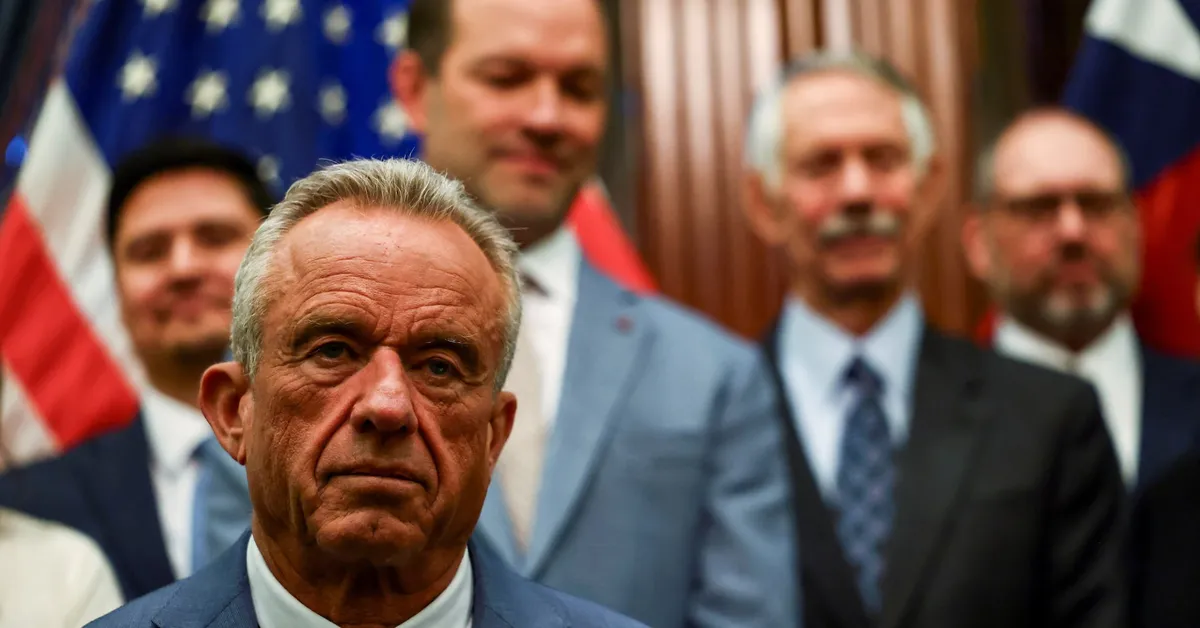
On August 28, 2023, CDC Director Susan Monarez was dismissed from her position after she resisted controversial changes to vaccine policy pushed by Health Secretary Robert F. Kennedy Jr.. According to a close associate, Monarez believed these changes contradicted established scientific evidence. This incident highlights the increasing division within the United States' public health approach and reflects the turmoil at the Centers for Disease Control and Prevention (CDC), an agency known for its global contributions to eradicating diseases such as smallpox and controlling HIV/AIDS.
The fallout from Monarez’s firing prompted the resignation of three key officials within the CDC. Fellow employees greeted these departing officials with applause as they left the Atlanta campus, signaling a strong display of solidarity against Kennedy’s controversial stance on vaccines. Former acting CDC director Richard Besser shared that Monarez communicated her firm stance on two critical principles: she would not engage in illegal activities or anything that contradicted scientific integrity. Besser noted that she was pressured to compromise on both fronts.
In interviews following the resignations, the three officials—Chief Medical Officer Debra Houry, National Center for Immunization and Respiratory Diseases Director Demetre Daskalakis, and National Center for Emerging and Zoonotic Infectious Diseases Director Daniel Jernigan—expressed their discontent over the rise of anti-vaccine policies and misinformation propagated by Kennedy and his associates. This shift in CDC leadership coincides with Kennedy’s sweeping changes to vaccine policies, including the dismissal of the expert vaccine advisory panel.
The White House has appointed Jim O’Neill, currently the deputy secretary of the Department of Health and Human Services, as the interim leader of the CDC. According to White House spokesperson Karoline Leavitt, Monarez’s reluctance to align with the president's mission, “Make America Healthy Again,” ultimately led to her dismissal. Upon her firing, Monarez reportedly expressed her willingness to resign but later changed her mind, prompting the president to act.
The departing officials cited a troubling increase in health misinformation—particularly regarding vaccines—as a significant factor in their decision to resign. Daskalakis emphasized the importance of adhering to the Hippocratic oath, stating, “First, do no harm,” and expressed concerns that current policies could lead to harm in public health. Their resignation letters, which were reviewed by Reuters, indicated alarm over the “weaponization of public health” and attempts to diminish the CDC's budget.
Since assuming office in January, Kennedy has exerted considerable influence over U.S. health policy, which has raised alarms among public health experts. Under his leadership, the CDC has faced criticism for its recent decisions, including withdrawing support for COVID-19 vaccinations for pregnant women and revising recommendations for children with pre-existing health conditions. During her confirmation hearings, Monarez maintained that there was no credible evidence linking vaccines to autism, a stance that contradicts Kennedy’s narrative.
Despite the backlash, Kennedy has remained steadfast in his approach, commenting on the need for reform within the agency. He suggested that some individuals may no longer be suited for their roles at the CDC. Besser, the former acting director, noted that Kennedy insisted Monarez accept all future recommendations from the revamped vaccine committee, a move that fundamentally alters the traditional autonomy of the CDC director concerning vaccine policy.
The situation at the CDC continues to evolve, raising critical questions about the future of public health in the U.S. amid growing concerns over misinformation and the politicization of health policies.